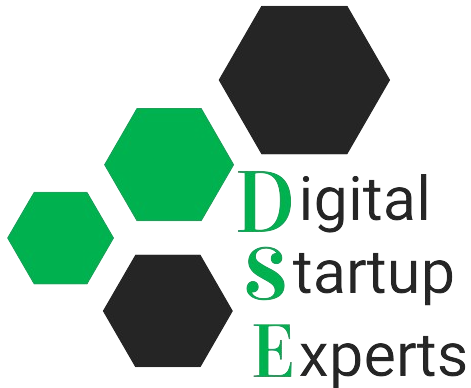Social media marketing has become a crucial aspect of any successful business’s online presence. With numerous platforms available, it can be overwhelming to determine the best practices and strategies that will yield effective results. In this article, I will share some valuable tips that will help you achieve success in your social media marketing efforts.
By implementing these tips, you can enhance your social media strategy, improve your branding, increase audience engagement, and track your metrics effectively. Whether you are a small business owner striving to build your brand or a marketing professional looking to optimize your campaign, these top social media marketing tips will provide you with actionable insights to elevate your presence on social platforms.
Throughout this article, I will delve into various aspects of social media marketing, including creating a tailored strategy for each platform, maintaining consistency in your branding and posting frequency, generating engaging and interesting content, actively engaging with your followers, and tracking and analyzing your metrics.
Let’s dive in and explore the best social media practices, the top social media strategies, and the most effective social media tactics that will drive success for your business.
Create a Strategy
To effectively navigate the vast landscape of social media platforms, it is crucial to develop a well-structured and tailored strategy for each one. This ensures that your brand’s message resonates with your target audience, and your content stands out amidst the noise. Crafting a successful social media strategy involves several key factors, including:
- Understanding the purpose of each platform
- Identifying your target audience
- Defining your brand message
- Choosing the right content formats
- Injecting uniqueness into your content
By meticulously considering these elements, you can optimize your social media presence and connect with your audience effectively.
| Platform | Purpose | Target Audience | Brand Message | Content Formats | Uniqueness |
|---|---|---|---|---|---|
| Connecting with friends and family, sharing news and updates | Wide range of demographics | Informative, entertaining, personal | Text, images, videos, live streaming | Engaging storytelling, human connection | |
| Visual inspiration, curated content | Youthful, visual-centric audience | Aesthetic, aspirational, creative | High-quality images, short videos, Instagram Stories | Visually appealing, brand consistency | |
| Real-time news, updates, and conversations | Opinionated, news-hungry audience | Concise, witty, conversational | Text, images, gifs, short videos | Captivating headlines, trending topics | |
| Professional networking, industry insights | Business professionals, job seekers | Informative, authoritative, career-oriented | Text, industry articles, infographics, videos | Expertise, thought leadership |
Each platform has its own unique characteristics, and by tailoring your content and approach accordingly, you can generate targeted content that resonates with your audience and drives engagement. Consistency in branding across platforms is also crucial to maintain a cohesive and recognizable brand identity in the digital landscape.
Be Consistent
Consistency is a crucial factor in the success of your social media marketing strategy. By maintaining consistency in your branding, messaging, posting frequency, and the use of hashtags, you can build a strong and recognizable brand image while establishing trust with your audience.
One way to ensure consistency is by creating a content calendar for each platform you use. A content calendar helps you stay organized and plan ahead, ensuring that you consistently deliver high-quality content to your audience. With a content calendar, you can schedule posts in advance, maintain a consistent posting frequency, and ensure that your content aligns with your overall branding and messaging.
Consistency in branding involves using the same colors, fonts, logos, and tone of voice across all your social media platforms. By doing so, you create a cohesive and recognizable identity that resonates with your audience and fosters brand loyalty.
Additionally, maintaining a consistent posting frequency is important for keeping your audience engaged and present in their social media feeds. Whether it’s daily, weekly, or bi-weekly, finding a posting frequency that works for your audience and industry ensures that your content remains visible and top of mind.
Consistency is key in social media marketing. By maintaining consistent branding, messaging, posting frequency, and utilizing a content calendar, you can establish a strong brand presence and build trust with your audience.
Consistency also extends to the use of relevant hashtags in your posts. Using consistent hashtags not only categorizes your content but also makes it discoverable to a wider audience. By using branded hashtags or industry-specific hashtags consistently, you can boost engagement and visibility for your social media posts.
Finally, consistency in engaging with your audience is essential. Responding promptly to comments, direct messages, and interactions shows that you value their input and are actively invested in building a relationship with your audience.
Benefits of Consistency:
- Builds brand recognition and trust
- Increases visibility and engagement
- Creates a cohesive brand identity
- Maintains audience interest and loyalty
- Maximizes the effectiveness of your social media marketing efforts

Create Engaging & Interesting Content
When it comes to social media, creating content that stands out is crucial. To capture your audience’s attention and keep them engaged, it’s important to incorporate various elements into your content creation process.
One effective way to make your content more engaging is by incorporating newsworthy topics. Stay up to date with the latest news and trends in your industry and find unique angles to share with your audience. By adding a fresh perspective to current events, you can create content that is both informative and engaging.
Another effective way to create engaging content is by using various forms of media. Visuals such as images, gifs, and videos can instantly capture your audience’s attention and convey your message more effectively. For example, consider creating short videos or animated gifs to explain complex concepts or showcase behind-the-scenes footage of your business.
In addition to visual media, consider including your staff in your content. People connect with people, so featuring your team members in your social media posts can make your brand more relatable and humanize your business. This approach helps to build trust and foster a sense of community with your audience.
Storytelling is also a powerful tool for engaging your audience. Instead of simply promoting your products or services, focus on telling stories that resonate with your target audience. Share personal anecdotes, customer success stories, or journeys that highlight your brand’s values and mission. This storytelling approach helps to create an emotional connection with your audience, making your content more memorable and shareable.
Lastly, staying up to date with current trends is essential for keeping your content relevant and connecting with your audience. Monitor popular hashtags, themes, and topics that are gaining traction in your industry. By aligning your content with these trends, you can increase the likelihood of your posts being discovered and shared by a wider audience.
Example of Engaging Content
“Our team recently participated in a charity run to raise funds for a local shelter. We had a blast running together and supporting an important cause. Check out this video of our team crossing the finish line and help us spread the word by sharing this post. Every share counts!”
Creating engaging and interesting content takes time and effort, but the rewards are worth it. By incorporating newsworthy topics, using various forms of media, featuring your staff, utilizing storytelling techniques, and staying up to date with current trends, you can create content that captures your audience’s attention and drives meaningful engagement.
| Ways to Create Engaging Content | Examples |
|---|---|
| Incorporate newsworthy topics | Sharing industry news, providing commentary on current events |
| Use various forms of media | Images, gifs, videos, infographics |
| Include your staff in your content | Introduce team members, share their stories |
| Utilize storytelling techniques | Share customer success stories, personal anecdotes |
| Stay up to date with current trends | Use popular hashtags, align content with trending topics |
Remember, the key to creating engaging and interesting content is to understand your audience’s preferences and interests. Experiment with different approaches and formats to find what resonates with them the most. By consistently delivering high-quality content that captures their attention, you can build a loyal and engaged following on social media.

Engagement
Engaging with your audience is a crucial aspect of social media marketing. By actively connecting and interacting with your followers, you can build a strong and loyal community around your brand. There are several effective ways to engage with your audience:
- Responding to Comments: Take the time to reply to comments on your posts, whether it’s answering questions, addressing concerns, or showing appreciation for the feedback. This not only demonstrates that you value your audience but also encourages further engagement.
- Liking and Sharing: Show your followers that you are interested in their content by liking and sharing their posts. This simple act can go a long way in building a genuine connection and fostering a sense of community.
- Live Streaming: Use live streaming features on platforms like Instagram and Facebook to host Q&A sessions, share behind-the-scenes footage, or provide exclusive updates. Live streaming allows for real-time interaction and gives your audience a chance to ask questions and engage with you directly.
- Polls and Quizzes: Create polls and quizzes to encourage your audience to participate actively. This not only generates engagement but also provides valuable insights about their preferences and interests.
Engaging with your followers is not only beneficial for building brand loyalty but also for increasing reach and visibility. By creating meaningful connections and fostering conversation, you can build a community that actively engages with your brand and becomes an advocate for your business.
Track and Analyze Metrics
To evaluate the effectiveness of your social media marketing strategy and make data-driven decisions, it is crucial to utilize social media analytics. By tracking key metrics such as engagement, reach, followers, impressions, and video views, you gain valuable insights into the performance of your campaigns and identify areas for improvement. Regularly analyzing these metrics allows you to gauge the success of your efforts and make necessary adjustments to optimize your social media marketing.
Monitoring social media analytics provides you with quantitative data that goes beyond vanity metrics, enabling you to understand your audience better and refine your strategy accordingly. Analyzing these metrics allows you to identify which content resonates most with your audience, what times are optimal for posting, and which platforms are performing well for your brand. Armed with these insights, you can fine-tune your strategy to deliver more impactful and targeted content, thereby maximizing your engagement and driving success.
“Data is the new oil,” as the saying goes. Social media analytics provides you with the fuel you need to power your social media marketing efforts and achieve your business goals. Without a thorough understanding of your data, you may be operating blindly, missing out on valuable opportunities to improve your strategy and connect with your target audience more effectively.
Having a clear grasp of your data allows you to measure the impact of your social media activities, identify trends, and evaluate the return on investment (ROI) of your marketing efforts. By consistently tracking and analyzing your metrics, you can gain insights into the performance of your campaigns, identify successful strategies, and uncover areas that need adjustment or optimization. These data-driven decisions will ultimately lead to more informed and effective social media marketing.
Implementing a robust social media analytics tool will streamline the tracking process and provide you with comprehensive reports and visualizations to aid your analysis. Many popular social media platforms offer built-in analytics features, while third-party tools provide more in-depth insights and cross-platform analysis capabilities. Choose a tool that aligns with your specific needs and goals, ensuring it covers all the essential metrics required for your strategy evaluation.
By harnessing the power of social media analytics, you can unlock the full potential of your social media marketing initiatives. It empowers you to make informed decisions, iterate on your strategy, and optimize your efforts based on real-time data. Don’t leave your digital footprint to chance. Embrace data-driven decision-making to achieve social media success.

| Metric | Description |
|---|---|
| Engagement | Measure the number of interactions, such as likes, comments, and shares, on your social media posts. |
| Reach | Track the number of unique users who see your content, allowing you to assess your audience’s reach. |
| Followers | Monitor the growth of your follower base, illustrating the size and potential reach of your online community. |
| Impressions | Count the total number of times your content is displayed, providing an indicator of brand visibility. |
| Video Views | Measure the number of times your videos have been viewed, helping you gauge the success of your video content. |
Evaluate your business and social media marketing goals
When it comes to creating an effective social media marketing strategy, the first step is evaluating your business and social media marketing goals. This assessment will lay the foundation for your strategy and ensure that it aligns with your overall business objectives.
To begin, assess your current social media efforts. Take a close look at the platforms you are currently using, the type of content you are posting, and the level of engagement you are generating. This evaluation will help you understand what is working well and identify areas for improvement.
Next, define specific goals for your social media marketing. These goals should be aligned with your business goals and focus on key metrics such as increasing brand awareness, driving website traffic, or generating leads. Clearly defining your goals will provide you with a roadmap for your social media strategy and enable you to measure your progress along the way.
In addition, audience research plays a crucial role in shaping your social media marketing strategy. Thoroughly understanding your target audience’s needs, preferences, and interests will help you create content that resonates with them. Conduct market research, analyze demographics, and engage with your audience through surveys or social media listening tools to gain valuable insights.
| Benefits of Evaluating Business and Social Media Marketing Goals | How to Achieve It |
|---|---|
| Align social media marketing with overall business objectives | Conduct a comprehensive assessment of current social media efforts and define specific goals. |
| Identify areas for improvement | Regularly analyze social media metrics and seek feedback from your audience |
| Gain insights into audience needs and interests | Conduct audience research through surveys, social listening, and market analysis |
By evaluating your business and social media marketing goals, you can ensure that your social media strategy is purposeful and effective. This evaluation will guide your content creation, engagement strategies, and platform selections, ultimately leading to a successful social media marketing campaign.

Determine which social media platforms are right for your business
When it comes to social media marketing, choosing the right platforms for your business is crucial for effectively reaching your target audience. It’s not necessary to have a presence on every social media platform. Instead, focus on the ones that align with your specific target audience and business objectives.
Consider the demographics and preferences of your audience. Understanding where they spend most of their time online will guide your platform selection. By identifying the social media platforms that your target audience actively uses, you can maximize your reach and engagement.
For example, if your target audience consists of professionals and businesses, LinkedIn is an ideal platform to showcase your expertise and connect with industry influencers. On the other hand, if you are targeting a younger demographic, platforms such as Instagram and Snapchat may be more effective in capturing their attention.
Remember: It’s important to prioritize quality over quantity. Instead of spreading yourself too thin across multiple platforms, invest your time and resources in creating a strong presence on the platforms that will yield the highest return on investment.
Understanding your target audience and their preferred social media platforms will enable you to tailor your content and messaging to resonate with them effectively. This targeted approach will help you build brand awareness, drive traffic, and engage with potential customers.
Benefits of selecting the right platforms:
- Maximize your reach: By focusing on the platforms where your target audience spends their time, you can increase your chances of reaching a larger audience.
- Improved engagement: When you connect with your audience on platforms they already use and enjoy, you can foster better engagement and build meaningful relationships.
- Increased brand visibility: By strategically choosing the right platforms, you can increase your brand’s visibility among your target audience and stand out from the competition.
- Efficient resource allocation: Rather than spreading your resources thin, focusing on select platforms allows you to allocate your time, energy, and budget more efficiently, resulting in better returns on investment.
Take the time to research and analyze different social media platforms to determine which ones align with your target audience and business goals. By understanding the preferences and habits of your audience, you can create a strong and effective social media strategy that resonates with your target audience and drives business growth.

Create unique and engaging content on your social platforms
Creating unique and engaging content is crucial to capturing your audience’s attention and fostering audience engagement on your social media platforms. In order to achieve this, it’s important to conduct thorough audience research to gain insights into their needs, preferences, and interests. This research will serve as the foundation for your content creation strategy, enabling you to deliver content that resonates with your target audience.
Emphasizing user-generated content (UGC) and leveraging different content types can be effective strategies for increasing audience engagement. UGC refers to content created and shared by your audience members, such as user reviews, testimonials, and photos of them using your products or services. When you incorporate UGC into your content strategy, it not only adds authenticity but also encourages your audience to engage and interact with your brand.
Experimenting with different content types is also key to keeping your audience engaged. Incorporating videos, images, infographics, and interactive elements such as polls and quizzes can all help diversify your content and provide a more immersive experience for your audience. By offering a variety of content formats, you cater to different preferences and capture the attention of a wider audience.
“Content marketing is like a first date. If all you do is talk about yourself, there won’t be a second one.” – David Beebe
Benefits of Different Content Types:
| Content Type | Benefits |
|---|---|
| Video | – Increases engagement – Showcases products/services in action – Builds emotional connections |
| Images | – Grabs attention in a visually-driven world – Elicits emotions and tells stories – Encourages social sharing |
| Infographics | – Presents complex information in a visually appealing way – Enhances understanding and retention – Encourages social sharing |
| Polls and Quizzes | – Drives interactivity and engagement – Generates valuable insights about your audience – Encourages social sharing |
Remember to analyze the performance of different content types using social media analytics. By tracking metrics such as engagement rates, click-through rates, and shares, you can gain insights into which content types resonate most with your audience. This data-driven approach will enable you to refine your content creation strategy and optimize future content for maximum audience engagement.
By creating unique and engaging content on your social platforms, you can establish a strong connection with your audience and build a loyal community around your brand. Keep in mind that evolving with your audience’s preferences and interests is essential for long-term success. Regularly reviewing and refreshing your content strategy will help you stay relevant and continue to drive audience engagement.
Conclusion
Social media marketing is a dynamic and ever-changing landscape that requires a solid strategy to achieve success. By implementing the right tactics, you can elevate your brand’s online presence and connect with your target audience effectively.
Firstly, it’s crucial to create a targeted social media strategy tailored to each platform. This strategy should encompass your branding, target audience, and content creation. By understanding the unique characteristics of each platform, you can craft engaging and unique content that resonates with your audience.
Consistency is key when it comes to social media marketing. Maintain a consistent brand identity, posting frequency, and utilize a content calendar to ensure you continually deliver high-quality content to your audience.
Engagement plays a vital role in building a community and fostering brand loyalty. Actively engage with your audience by responding to comments, liking and sharing their content, and utilizing interactive features like live streaming, polls, and quizzes.
Lastly, track and analyze your social media metrics. By regularly reviewing your analytics, you can evaluate your strategy’s effectiveness, identify areas for improvement, and make data-driven decisions. This will help you refine your approach and optimize your social media presence.
By applying these key principles of social media marketing – strategy, branding, engagement, content creation, and analytics – you can enhance your online presence and achieve your marketing goals. Stay informed about the latest trends, consistently refine your approach, and connect with your audience effectively. Start implementing these tips today and watch your social media presence thrive!




